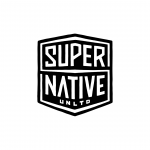ANZAC Day, a modern sacred tradition
Hi folks and welcome to my Friday Reflection.
This week my reflection focuses on Sacred Sites being a Place of Belonging.
We have witnessed how ANZAC Day can be treated as a ‘holy day’ for so many people. We have seen how traditions, stories, ceremonies, and sites featured to maintain our connection between our past and present.
Honouring Tradition and Heritage
The treatment of ANZAC Day can help us to appreciate sites and stories that are special for our sense of belonging. ANZAC Day can resonate with ancient human practices of dedicating time collectively at a special place to engage in storytelling, traditions, customs, and ceremonies which strengthen our sense of belonging. These stories and traditions have been forged into Australian identity since the 1930s.
Collectively we engaged in sacred ceremonies at sacred sites, telling sacred stories to maintain our connection and belonging.
Through the repetition of ceremony, we honour the story of place, the ancestors of the story, and those who also carry the memory of the story. The ceremony allows us to retell the significance of the stories and sites and why they must remain part of our collective memory.
Embracing Diversity in Belonging
It is through the cycles of repetition of ceremony we also discover our changing perspectives over time. New elements of the story stand out at different times. New connections of application appear and help us to deepen our understanding and belonging over time.
Unfortunately, this week we also witnessed a resistance to acknowledge, recognise, respect, and accept Kati Thanda – Lake Eyre as a sacred site and place of belonging.
I encourage you to become more open to accepting people will go to special places to engage in traditions, tell stories, and conduct ceremonies to strengthen their collective sense of belonging. Some of those stories and traditions have been ours for over one hundred years, and some of those stories are over tens of thousands.
Navigating the Future of Heritage
I encourage you to become more attuned to the changing sense of belonging in our communities. Some of us are becoming more closed to others to strengthen and tighten our belonging. Some of us are more open to crafting liberating collective belonging together.
I encourage you to take some time to reflect on how this week was for you. Was it a strong affirmation of belonging? Did you feel included and connected? Was this week about resistance to dominant expressions of identity? Where did you find your sense of belonging and connection?
We have inherited these stories, traditions, ceremonies and places. We are the ones who will navigate how to maintain our collective memory and sense of belonging into the future.
Be encouraged and encourage others.
Mark Yettica-Pauslon





